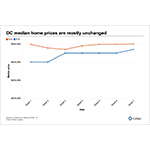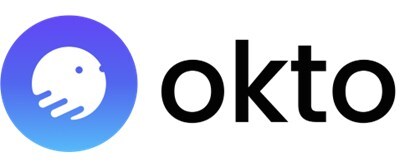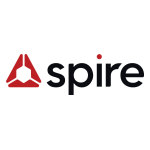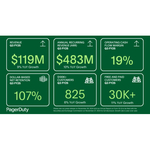- New survey finds 94 percent of benefit decision-makers believe heart conditions pose major financial risk, but most are not confident in their response to the epidemic
- Heart health ranked as the top concern for benefit leaders in 2025, followed by mental health
- Only 44 percent of decision-makers knew heart disease was the leading cause of death for women, signaling dangerous lack of awareness
Only One in Three Benefit Leaders Prepared to Manage Costly Heart Health Crisis in 2025
Media Contact
Andrew Padgett
media@helloheart.com
Hello Heart, the digital leader in preventive heart health, today released the 2025 Heart Health Matters Report, identifying key trends in how benefit decision-makers are thinking about the human and financial impacts of not only heart disease, but other chronic conditions as well.
Heart disease continues to be the most prevalent and deadly chronic condition nationwide. It claims more lives than all forms of cancer combined and costs the economy more than $250 billion annually via healthcare utilization and lost productivity. Despite these staggering numbers, more than half of U.S. adults remain unaware that heart disease is the leading cause of death.
This crisis poses immediate consequences not only for employee and member health, but for increasingly strained healthcare budgets. In fact, the average person with a heart condition is expected to incur over $10,000 in annual medical costs to their sponsoring organization.
To gauge organizations’ awareness and readiness to manage heart disease in 2025, Hello Heart commissioned an anonymous survey of 375 healthcare and benefit decision-makers at public sector organizations, self-insured employers, labor unions, and health insurance plans.
The survey found that:
- 94 percent of decision-makers believe heart conditions are a significant threat to their organization’s people and bottom line.
- Only 35 percent of leaders feel prepared to address the heart health crisis.
- 59 percent of decision-makers cited heart health as a top priority for 2025, followed by mental health at 49 percent.
Responses demonstrate that leaders recognize the massive human and economic cost of heart disease on their organizations, but lack the resources needed to prevent and manage it in their populations. Factors ranging from high blood pressure to psychological stress greatly increase the risk of cardiac events.
Heart Health and Mental Health Are Top Concerns, Closely Connected
Even as decision-makers ranked heart conditions as the top health threat to their organization, they also emphasized the importance of mental health, noting that workplace stress, burnout, and other risk factors have worsened in their populations since the COVID-19 pandemic.
“Leaders are right to highlight heart health and mental health as top concerns,” said Edo Paz, MD, SVP, Medical Affairs at Hello Heart. “But the connection between the two is often overlooked. If your people are suffering from mental health conditions, they are also at greater risk of expensive and avoidable care for heart-related issues. Inversely, by helping people take better care of their hearts, you can improve their mental health as well.”
In Hello Heart’s survey, 72 percent of decision-makers agreed that they are not currently doing enough to monitor and address the impact of workplace stress on employees’ and members’ cardiovascular health.
More Awareness Needed on the #1 Risk to Women’s Health
Responses also indicated a need for greater awareness about heart health risks for women. While 57 percent of respondents correctly answered that heart disease is the top cause of death for Americans, only 44 percent correctly answered that heart disease is also the top cause of death for women.
“We still have a lot of work ahead to raise awareness that heart disease is the number one threat to women’s health,” said Jayne Morgan, MD, VP, Medical Affairs at Hello Heart. “It’s time to expand the definition of women’s health beyond fertility and reproductive care to include heart health. This also means talking more about menopause and about pregnancy complications, which both greatly increases a woman’s heart health risk.”
Despite the lack of awareness on women’s heart health, decision-makers largely supported initiatives to reduce cardiovascular risk among women: 82 percent supported expanding their organization’s women’s health programs to include heart health and 87 percent said addressing hypertension in pregnancy should be a key focus of women’s health benefits.
Desire for Specialized Solutions
The survey found that 90 percent of decision-makers believe digital health tools can play a vital role in improving heart health and reducing costs. Their opinions on the type of tool vary.
Notably, the majority of decision-makers — 57 percent — said they prefer offering digital health solutions that address one specific condition rather than several conditions at once. This points to the value leaders see in providing distinct, complementary approaches to the prevention and management of different chronic conditions rather than attempting to address all of their population’s needs with one solution.
“Heart disease is costing organizations and their people in so many ways, from high-priced acute care to profound reductions in productivity and quality of life. Given their widespread severity, heart conditions deserve singular focus and investment,” said Maayan Cohen, CEO and co-founder, Hello Heart. “Leaders that make heart health a top priority in 2025 will save significantly on healthcare spending and support healthier, more engaged populations. But to do so, they need effective programs and technology that can scale to every person at risk of a heart attack or stroke.”
To learn more, download the free report at helloheart.com/hearthealthmatters.
About the Survey
Hello Heart partnered with market research firm Whitman Insight Strategies to anonymously survey 375 leaders with decision-making power on employee and member healthcare benefits. Respondents included:
- 200 decision-makers at public and private sector organizations with 3,000+ U.S. employees or labor organizations covering 3,000+ members;
- 100 decision-makers at health plans that service 20,000+ members; and
- 75 benefit consultants that advise on employee and group health benefits to enterprise-level organizations of 3,000+ U.S. employees.
About Hello Heart
Hello Heart is on a mission to change the way people care for their hearts. The company provides the first app and connected heart monitor to help people track and manage their heart health and get real-time tips. With Hello Heart, people can take steps to control their risk of heart attacks and stroke – the leading cause of death in the United States. Peer-reviewed studies have shown that high-risk users of Hello Heart have seen meaningful drops in blood pressure, cholesterol and even weight.
Recognized as the digital leader in preventive heart health, Hello Heart is trusted by more than 130 leading Fortune 500 and government employers, national health plans, and labor organizations such as 3M, Lenovo, Northwestern Mutual, the City of Fort Worth, and the Cleveland Bakers and Teamsters Pension Fund. Hello Heart clients can save $1,676 per enrolled user annually according to an independent analysis by the Validation Institute.
Founded in 2013, Hello Heart has raised more than $138 million from top venture firms including Khosla Ventures, IVP, and Stripes. Hello Heart is a best-in-class solution on the American Heart Association’s Innovators’ Network, CVS Health Point Solutions Management offering, and many other leading health solution platforms. Visit www.helloheart.com for more information.
View source version on businesswire.com: https://www.businesswire.com/news/home/20250114250612/en/
 Business wire
Business wire 











Add Comment